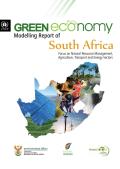Numbers ranging from half a trillion to two trillion dollars have been cited in recent years for global subsidies for fossil fuels. How are these figures calculated and why are they so different? The most commonly used methods for measuring subsidies are the price-gap approach, quantifying the gap between free-market reference prices and the prices charged to consumers and the inventory approach, which constructs an inventory of government actions benefiting production and consumption of fossil fuels. Practitioners are not faced with two choices. The two methods are complementary and should be used together, price gaps cause distortions throughout the economy and quantification is needed for improving pricing policies; an inventory is useful for examining budgetary allocation. An inventory based on a full accounting framework for producer and consumer support estimates in fact captures price gaps as market transfers to producers or consumers. Differences in subsidy valuation arise from assumptions made to compensate for missing data and the scope of subsidy measurement.

There are many claims and counter-claims about whether green growth creates or destroys jobs. But fully assessing the consequences of environmental policies for employment presents a considerable challenge, and at present it is not possible for policy-makers to assess conflicting claims about the quality and quantity of green jobs that have already been created, or may be created in the future. One approach would be to focus on changes in employment in industries that provide environmental goods and services. Another would be to count the jobs created when firms adopt technologies with less environmental impact and switch to less polluting inputs, regardless of their primary outputs. Both approaches can be helpful for assessing the direct impact on jobs and the scale of structural change required by the transition to green growth. But green policies also affect labour markets indirectly through supply chains and through changes in overall demand. The destruction of ‘brown jobs’ in polluting industries should also be taken into account.
The purpose of this paper is to provide a critical review of extant knowledge on green lodging integration and a compilation of empirical studies that examine the greening of the lodging industry, published between 2003 and 2014. Empirical academic studies are grouped in three pillars: (a) studies that focus on corporate perspective, (b) studies that examine the role of governmental and trade organizations and (c) studies that focus on consumers’ perceptions in regard to hotels’ green integration. Accumulated knowledge is further presented in a structured way, through a Summary Table. Finally, the paper aims at setting the future research agenda in the area of green lodging by highlighting areas where results are equivocal, areas with evolving research attention and research issues that would enhance our understanding towards a greener lodging industry.

